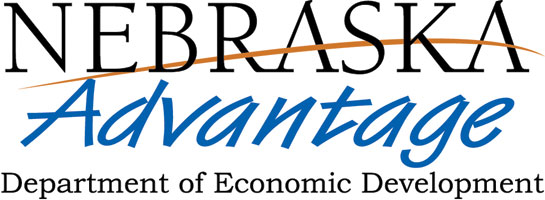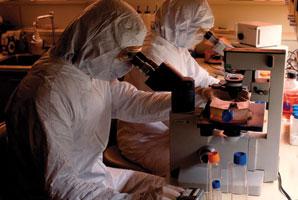
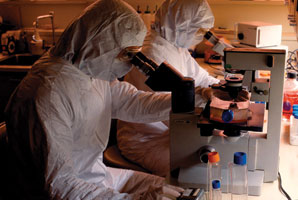 The landscape of the bio-solutions industry is developing at a brisk pace in Nebraska.
The landscape of the bio-solutions industry is developing at a brisk pace in Nebraska.
More than a hundred Nebraska companies linked in one form or other to bio-solutions dot the Nebraska landscape, employing more than 9,000. The number of companies located in the greater Omaha and Lincoln metropolitan areas are split about 50-50 with those located throughout the remainder of the state, clearly indicating that bio-solutions related companies are meeting with great success no matter where they locate in the state.
Of these, approximately 93 percent are involved in the production of products. These include pharma and nutraceutical products, bio and medical devices, instruments and equipment, or software production, ethanol production, and biological and intermediate products.
Nebraska’s extensive program of tax credits and incentives, including an R&D tax credit, coupled with its outstanding business and university partnerships continue to attract internationally recognized companies, including Cargill Inc., Streck Laboratories Inc., Novartis Consumer Health Inc., Pfizer Global Manufacturing, Novozymes, 3M, and Becton Dickinson Health Care to name a few.
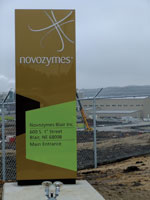 Novozymes is currently constructing a new $80-100 million production facility in Blair, Nebraska, to meet demands for enzymes in the bio-ethanol and biotechnology industries, initially bringing approximately 100 new jobs to the state. Headquartered near Copenhagen, Denmark, Novozymes conducted a worldwide location search before settling on Nebraska.
Novozymes is currently constructing a new $80-100 million production facility in Blair, Nebraska, to meet demands for enzymes in the bio-ethanol and biotechnology industries, initially bringing approximately 100 new jobs to the state. Headquartered near Copenhagen, Denmark, Novozymes conducted a worldwide location search before settling on Nebraska.
“The U.S. is an attractive and competitive market for us to invest in,” said Peder Holk Nielsen, executive vice president and head of Enzyme Business. “The new location will allow us to sustain our close operation with bio-ethanol customers across the Midwest and provide us access to a well-educated workforce and good infrastructure.”
A local start-up company in Laurel, Nebraska, Laurel BioComposite LLC recently announced a $14 million facility used to turn distillers’ grain into plastic. A second site planned for later development includes an ethanol plant utilizing fractionation technology to produce 50 million gallons of ethanol a year. Total investment is more than $19 million.
The state’s biomedical industry is also positioned to attract more biomedical companies with the benefit of being able to offer development-ready technologies formulated at the state’s university’s nationally recognized research facilities. One such company, Vireo Resources was welcomed to Plattsmouth, Nebraska. Vireo Resources processes and packages human nutritional products and animal health care products developed at the University of Nebraska Medical Center.
UNeMed licensed product technology in 2007 to Vireo Systems Inc. of Madison, Tenn., Vireo Resources’ parent company that makes raw materials for creams and powders to manufacture products for retail distribution and sale. The company’s newest facility offers climate-controlled storage for warehousing, order fulfillment, and distribution to serve Vireo Resource customers who require shipping to various domestic and international locations.
The University of Nebraska offers an extensive network of research and medical centers and technology parks that work with cutting-edge technologies. Included among these are:
Nebraska Center for Virology in Lincoln—As many as seven research labs, support facilities and office and seminar space are available for companies, and soon the center will feature an $8 million, 26,000-sq.-ft. laboratory wing upgrade on the university’s East Campus. www.unl.edu/virologycenter
University of Nebraska Medical Center in Omaha—The University of Nebraska Medical Center and Eppley Cancer Center are pioneers in medical research. Centers of excellence include cancer, transplantation biology, cardiovascular disease, genetics, neuroscience, advanced biomedical technology, biosecurity and biopreparedness, and nanomedicine. The Durham Research Center features more than 20 research laboratories, and UNeMed, the commercialization subsidiary of UNMC, handles traditional intellectual property out-licensing, and helps establish spin-off technology companies. www.unmc.edu
Scott Technology Center in Omaha—Laboratories and programs here are custom designed for new technology driven businesses and incubators, as well as entrepreneurs, all in the name of addressing environmental needs of new high tech businesses. www.scott-technology.com
University of Nebraska Technology Park in Lincoln—This 150-acre campus is home to 18 technology-based firms that employ more than 2,100. The Park’s Technology Development Center focuses on early incubator stage and growth firms and new ventures undertaken by established companies. A business sampling includes new animal vaccines, animal genomics services, animal diagnostics, and new platform technologies for DNA vaccine manufacture, among others. http://nutechpark.com
University of Nebraska Bio-Processing Laboratory in Lincoln—This multidisciplinary “turn-key” facility is focused on biopharmaceutical process research, development and manufacture of candidate vaccines and bio-therapeutics derived from recombinant expression systems. http://bpdf.unl.edu
George W. Beadle Center for Genetics and Biomaterials Research in Lincoln—A $32 million, 140,000-square-foot state-of-the-art facility on the University’s Main Campus, this center also houses the UNL Center for Biotechnology, Redox Biology Center, and UNL Plant Science Institute. http://ianr.busctr.unl.edu/BBC/
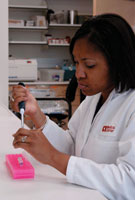 In addition, Boys Town National Research Hospital in Omaha employs experts in scientific research who are making headway in the areas of genetics, hearing, language, vision and speech disorders. These areas, in turn are then translated into new technologies, new medical diagnoses, distance learning programs, and new medical technology applications. http://www.boystownhospital.org
In addition, Boys Town National Research Hospital in Omaha employs experts in scientific research who are making headway in the areas of genetics, hearing, language, vision and speech disorders. These areas, in turn are then translated into new technologies, new medical diagnoses, distance learning programs, and new medical technology applications. http://www.boystownhospital.org
Creighton University in Omaha is also conducting substantial research in bacterial resistance, cancer, hearing loss, and conditions affecting bone health and loss. Researchers at the University’s School of Medicine are working to develop new therapies contributing to patients’ health and well being and essential to treatment and disease prevention. Creighton’s Intellectual Resources Management Office works closely with business contacts and those University divisions developing technologies and services. http://medschool.creighton.edu/medicine/research
Helping connect and tie together all of the state’s cutting-edge bioscience breakthroughs and technology is the Bio Nebraska Life Sciences Association. www.bionebraska.org
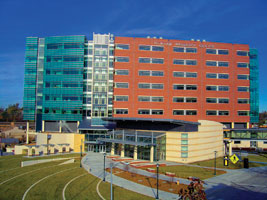 Recently announced by the IRS, $2.4 million in credits or grants under the Qualifying Therapeutic Discovery Project Program was awarded to seven Nebraska biotechnology companies for 11 projects, including Advanced BioAdjuvants LLC, JN Medical Corporation, Nature Technology Corporation, SpineX Tec LLC, Transgenomic Inc., Virtual Incision Corporation, and Ximerex Inc.
Recently announced by the IRS, $2.4 million in credits or grants under the Qualifying Therapeutic Discovery Project Program was awarded to seven Nebraska biotechnology companies for 11 projects, including Advanced BioAdjuvants LLC, JN Medical Corporation, Nature Technology Corporation, SpineX Tec LLC, Transgenomic Inc., Virtual Incision Corporation, and Ximerex Inc.
These companies were selected because of their significant potential to produce new therapies, address unmet medical needs, reduce the growth of health care costs, or advance the goal of curing cancer in 30 years.
In one case, Virtual Incision Corporation, a developer of in vivo robots for use in single incision laparoscopic surgery, recently completed a $2 million Series A financing led by PrairieGold Venture Partners and Bluestem Capital that will help it develop advanced prototypes of the Company’s robotic surgical platform. The company, founded by two University of Nebraska professors, also has established its corporate headquarters in Lincoln.
Experience the many Nebraska Business Advantages. www.NebraskaAdvantage.biz 